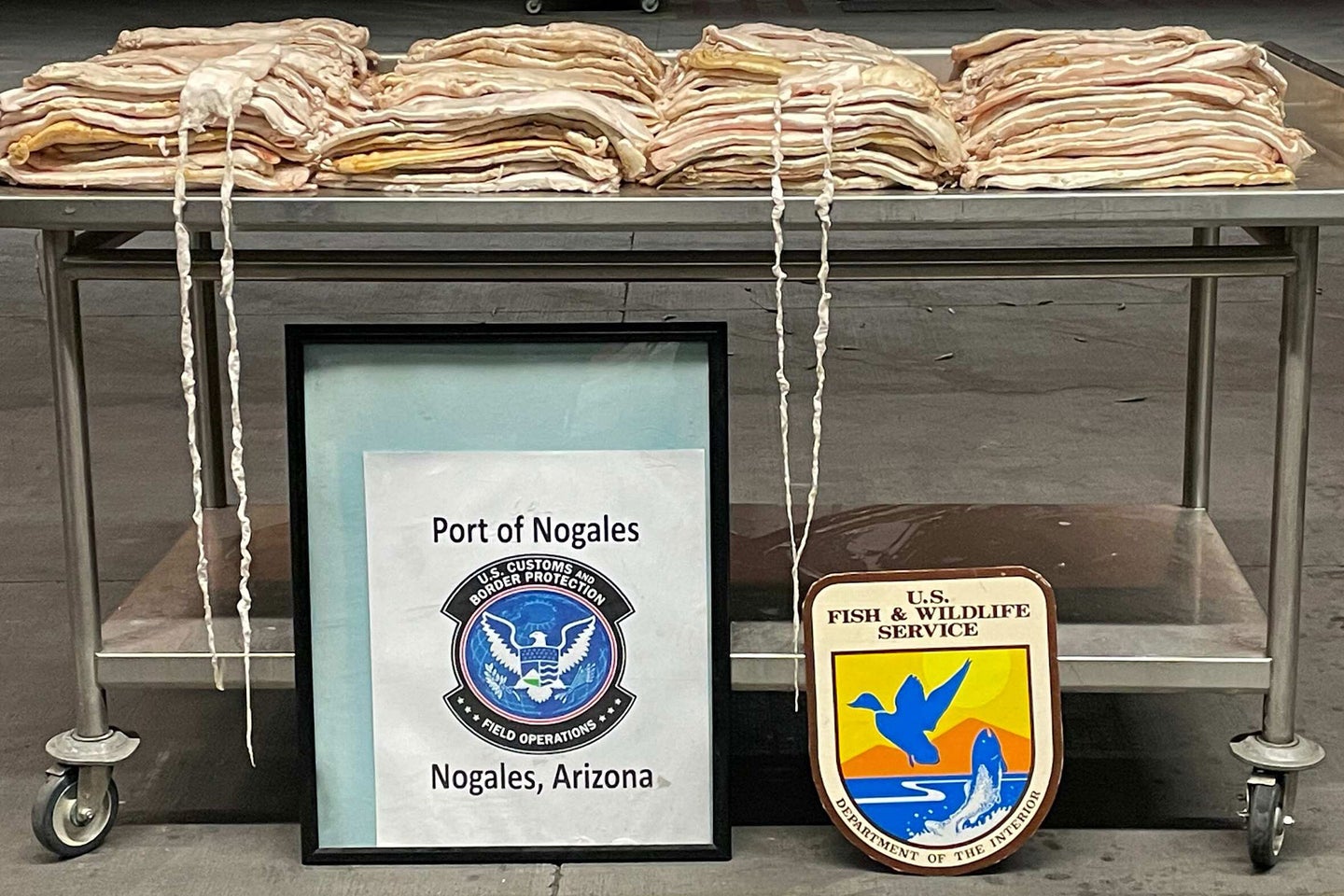Border Agents Seize Hundreds of Fish Bladders Worth Nearly $3 Million

On Monday, June 12, U.S. Customs and Border Protection (CBP) officials issued a press release announcing the seizure of $2.7 million worth of fish swim bladders at the U.S.-Mexico border in Nogales, Arizona back in April. CBP officials discovered 270 bladders—242 pounds worth—concealed within a commercial shipment of frozen fish filets at the Mariposa trade facility.
DNA testing by the U.S. Fish and Wildlife Service revealed that the bladders, also known as maw, came from a species called totoaba, a fish found in the Gulf of California in Mexico. Totoaba have been protected under the U.S. Endangered Species Act since 1979. It is illegal to possess, transport, or sell them in the U.S. The Convention on International Trade in Endangered Species of Wild Fauna and Flora also prohibits their trade globally.
Totoaba, dubbed “cocaine of the sea” for their exorbitant monetary value and high level of demand, are a species of drum found exclusively in the Sea of Cortez. They can reach up to six feet in length and tip scales ar more than 220 pounds.
Formerly an abundant staple for local communities, overfishing led to their near extinction before they gained endangered status. Since then, their swim bladders, which have high collagen content, have become highly prized as traditional Chinese medicine, thought to aid in fertility and skin vitality, and as a culinary delicacy.
According to Insight Crime, a kilogram of totoaba swim bladder can fetch $20,000 to $80,000 on the black market in Asia, compared to a kilogram of shark fin which goes for $700. Newsweek reports that vaquita, a critically endangered porpoise with only about 100 individuals remaining in the Gulf of California, are at high risk for bycatch fatalities in the Mexican totoaba fishery.
Related: Undercover Agents Net Large Sturgeon Poaching Ring After Multi-Year Investigation
U.S. Fish and Wildlife Service and Homeland Security continue to investigate the case, CBP said in the press release. “This find by our CBP Officers, potentially the second largest seizure of Totoaba swim bladders nationwide, is an exceptional example of the job they do enforcing laws regarding all commodities entering the United States,” CBP spokesman Guadalupe Ramirez. “It’s also an excellent example of our working relationship with our U.S. Fish and Wildlife partners, enforcing the Convention on International Trade in Endangered Species treaty agreement.”
The post Border Agents Seize Hundreds of Fish Bladders Worth Nearly $3 Million appeared first on Field & Stream.
Articles may contain affiliate links which enable us to share in the revenue of any purchases made.
